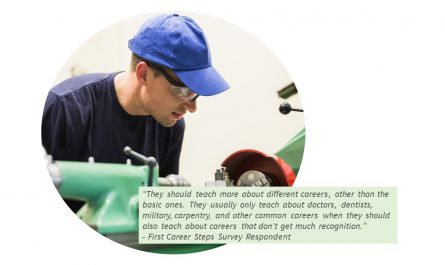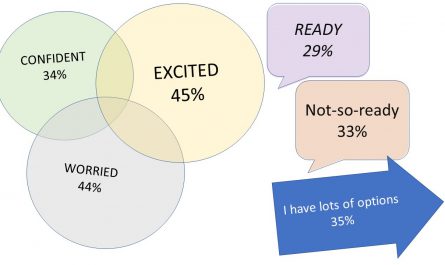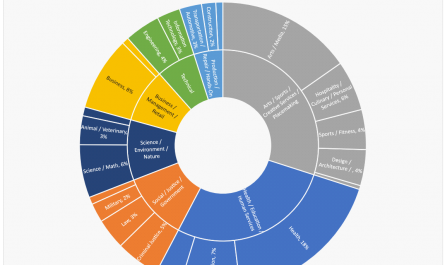In the First Career Steps survey, how many students express interest in public safety and criminal justice fields? Has the level of interest changed over time, with shifts in the public perceptions of police work? What career development experiences and skills could help to thoughtfully attract a diverse mix of students into this career pathway and prepare them for leadership in this work?
Over just over ten years of this survey, careers in criminal justice and related work are typically among the more commonly-mentioned career interests, with many expressing interest in being a police officer, detective, FBI agent, or other police-related careers. Other criminal-justice-related career options are found among those interested in law (such as criminal defense attorney) or science (including forensic science). Although these interests continue to be common in recent years, there has been a decline in interest, perhaps reflecting shifts in public perception of police work and reflecting the increasing stresses and burnout in these professions.

As noted in earlier articles, the First Career Steps survey is not necessarily a representative sample of all high school students. Survey results come from (a.) students who are searching online and find and complete the survey; and (b.) students in schools that use this survey as part of a career exploration class or workshop. Results are primarily U.S.-based, but also come from all over the world. And so, although the survey results are not necessarily a representative sample of all students, we can say that with 7500+ responses over ten years, it is definitely a valuable data set, providing insights that suggest areas for consideration and discussion.
When asked about their career exploration experiences, respondents who are interested in criminal justice are especially likely to mention career-related classes, career speakers, and field trips to local worksites. Several survey respondents mentioned that they were grateful for the opportunity to work on forensic science projects in their science classes or to have courses in criminal justice. Others said that they wished that their school had courses in criminal justice. For example:
- My school has programs such as business, biomedical science, biotechnical, environmental science, engineering, nursing and etc. These are very helpful for leading us to careers in the future. Being in the biomedical program has influenced me to look into forensic science more, and be more interested in criminal and medical fields.
- My school has an impact class that is helping us with our careers… I just wish they had a criminal justice class.
- The most helpful thing about my school is that it helps the students learn about careers. For example, I had forensics last year, and intro to business, and this year, we have done career explorations.

When asked to rate how confident they are in various career skills, respondents who are interested in criminal justice careers gave responses very similar to the responses of respondents as a whole. They were fairly confident in their skills in working with people, leadership skills, logical thinking and creative thinking, and, like most other respondents, less confident in their skills in working with data and numbers, a skill that is increasingly important for organizing, analyzing, and sharing public safety information.

While exploring options to encourage interest in criminal justice careers, it will be important to offer a variety of avenues for exploration, using the classroom setting, summer programs, community service opportunities, and internship opportunities. Through these experiences, it is especially important to not only raise awareness of and interest in these career opportunities but also to help students build skills that will prepare them to be effective leaders in this important field. Courses in criminal justice, interdisciplinary classroom projects, community service opportunities, and internship opportunities can focus on a wide range of skills and topics, exercising skills in working with data and numbers, creative and logical thinking, problem-solving, communication, and leadership.
Part of a series of posts about the First Career Steps survey. In the First Career Steps Survey, we ask “If you can, list one or more career areas that might interest you.” with room for up to four open-ended answers. From the start of the survey in November 2011 to November 2021, 6,478 of the 7,500+ survey respondents have listed one or more career interest areas in this question, with a total of 17,313 open-ended responses. Skills Library interns have coded these answers into career clusters and broad categories, allowing us to look for common interests, patterns and trends. Thank you to Emma Klektoka and Ben Gardiner for data analysis.




